Twenty-one union leaders from Banten and surrounding areas participated in the Makin Terang program’s Data-Driven Advocacy Workshop in South Tangerang, Banten, from September 20-22, 2024. This workshop aimed to improve unions' capacity for data-based advocacy and negotiation strategies.
Day One
Ichsan from TURC began the workshop with introductions, rules, and safeguarding policies. Andina from Gajimu then presented the first session on the "Introduction to the Makin Terang Program."
To help unions identify and understand the root causes of labour issues, Ichsan led a session on "Understanding the Root Causes of Labour Rights Violations in the Workplace." One method discussed was the problem tree analysis. After understanding the concept, participants were divided into three groups, each focusing on their specific issues. Participants found this method effective for identifying root causes.
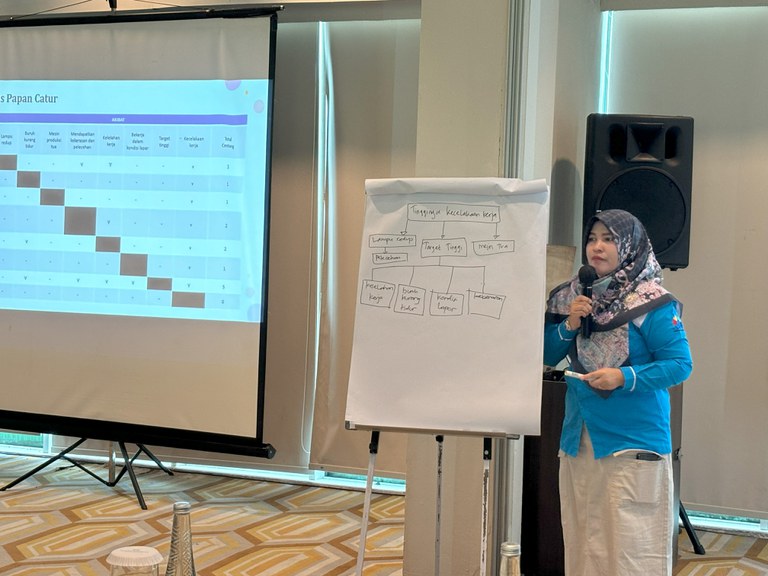
Raja Siregar from FSB Garteks KSBSI facilitated a session on "A genuine Trade Unions," encouraging participants to rethink what a genuine trade union is and the differences between rights and interests. He emphasized that the strength of a union lies in its membership, organisational dues, and advocacy and negotiation. Good practices from union struggles include the freedom of association protocol in footwear companies (FoA Protocol), MPBI's (Indonesian Labor Workers Council) success in pushing for wage increases, and KAJS's (Social Security Action Committee) role in advocating for the social security system, now managed by BPJS Kesehatan and BPJS Ketenagakerjaan.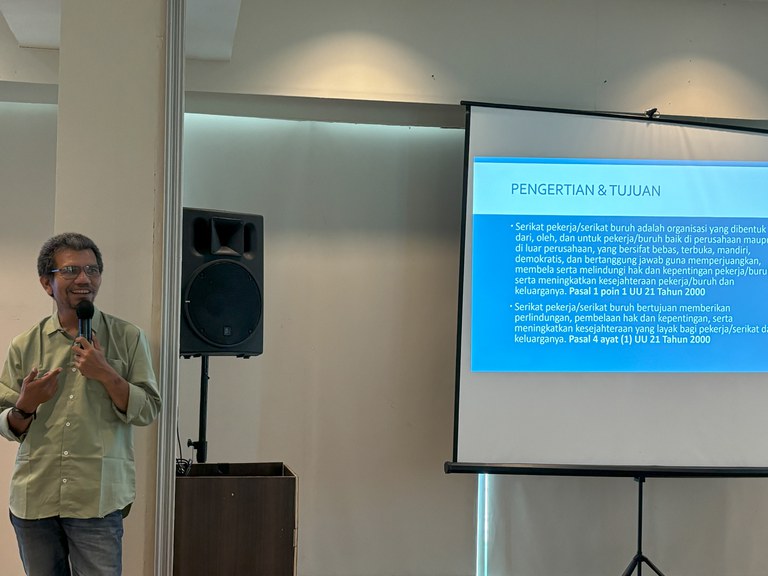
Afterwards, to address gender inequality, participants discussed the "Basic Concepts of Gender" led by Dela Feby from Gajimu. After discussing the concepts of sex and gender, participants conducted a simple simulation to test their understanding. Generally, all participants understood the difference. Assigning social roles to specific sexual identities contributes to gender-based violence.
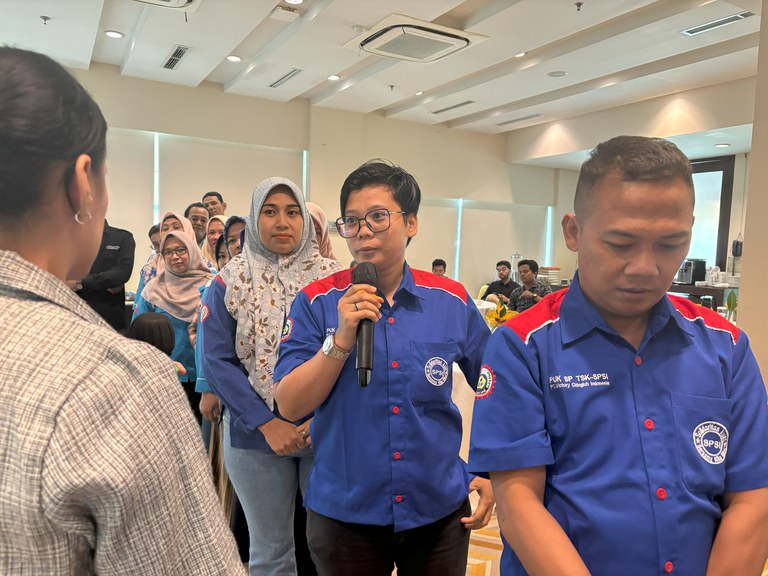
After a break, the facilitator introduced a "Privilege Walk" simulation. Each participant received a profile representing a worker with different backgrounds (age, education, gender, union member/leader, position). Participants would step forward if they could achieve a particular treatment or condition based on their profile. If not, they would remain in place. After the exercise, participants concluded that groups such as women from poor backgrounds, with low education, and lower positions face more challenges in achieving these opportunities.
Following the privilege walk and intro to gender, Jumisih from FSBPI led the session on "Gender Injustice." Participants were then grouped according to their factory and answered questions about the composition of male and female union members and leaders in their factories, the election process for leaders, opportunities for female members and leaders to express opinions, and the injustices felt as female members and leaders.
The results showed that in most factories, female union members significantly outnumber male members, but there are more male leaders than female leaders. One female leader commented, "There are more female members, but there are more male leaders. That’s a problem. It’s getting worse for female leadership development. Meanwhile, there are many women’s issues that need to be raised and fought for."
Regarding the challenges of female leadership, some participants mentioned family support as an issue, particularly for activities outside the city, with no one to take care of their children. One female participant noted that domestic responsibilities still largely fall on women/wives. "In my view, household responsibilities are more on women than men, so the gap is larger," she said. Some other groups felt that women face no challenges and that there is no gender injustice in their union.
Jumisih highlighted the lack of female union chairpersons, which stems from social identities that consider women unsuitable for leadership. She emphasized that support and opportunities are crucial for overcoming the challenges of female leadership in unions.
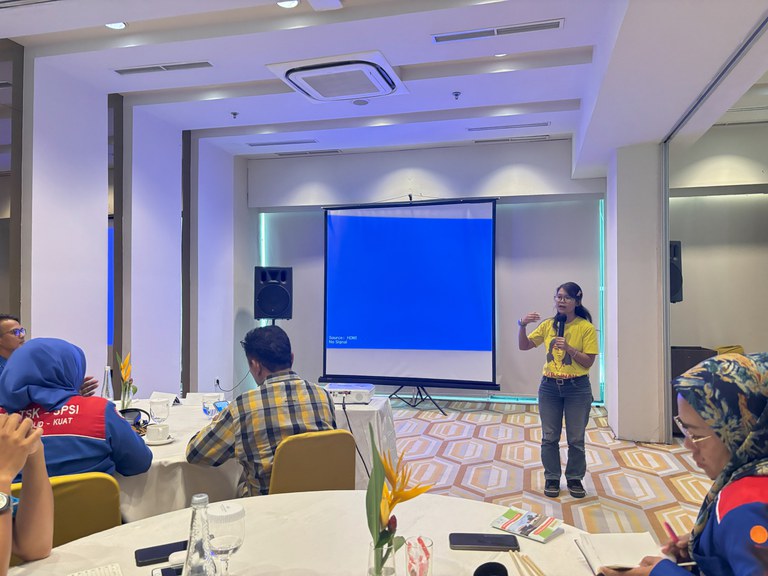
Day Two
After a review of the previous day's sessions, participants moved on to the session on "Data & Information" led by Biko from TURC. This session began with a video from TURC on using data. The discussion then continued on the differences between data and information, as well as qualitative data (descriptive information that cannot be measured numerically) and quantitative data (measurable, countable, and comparable information).
Venda from TURC continued the discussion with an "Introduction to Advocacy." After explaining the definition, purpose, targets, and stages of advocacy, participants discussed actual advocacy practices they had undertaken. One participant emphasized that advocacy is one of the three main functions of unions, alongside education and organizing. According to him, unions play an advocacy role because labor law implementation sometimes deviates. Participants were then divided into three groups to analyze the qualitative and quantitative data needs, data collection methods, and advocacy strategies for one case study.
To complement data-driven advocacy, in the next session, Fifi, Andina, and Andira from Gajimu explained how to access and use the data and information available on the Gajimu website. This includes minimum wages, labour laws, collective bargaining agreement databases, DecentWorkCheck survey results, and WorkerPriorityPolls. Unions can use this data to support their arguments in negotiations with management.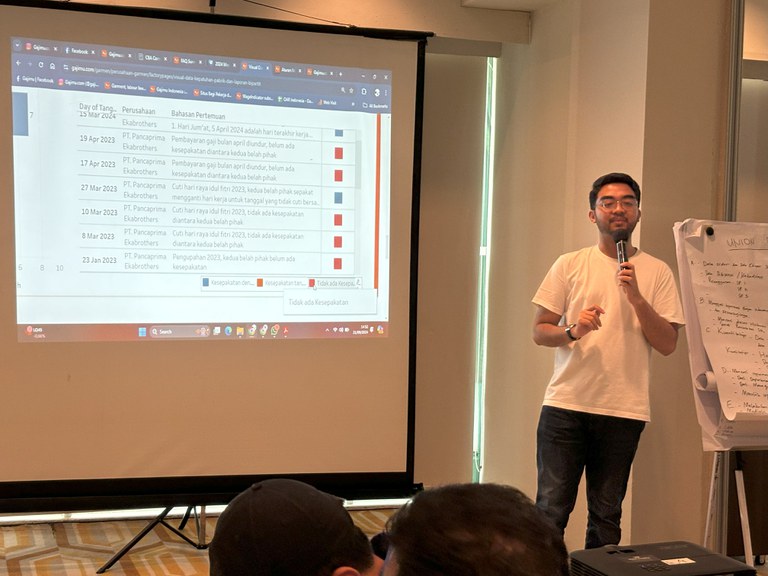
At the end of the second day, Ichsan from TURC introduced a workshop tool to check non-compliance findings by each company gathered in the DecentWorkCheck survey and then design an advocacy strategy to address the company’s non-compliance and improve working conditions. This process was assisted by one facilitator from Gajimu or TURC.
Day Three
After reviewing each of the second day’s discussion sessions, each company group presented their advocacy plans. The topics included preventing layoffs of pregnant workers, menstrual leave without a doctor's note, transitioning contract workers to permanent workers, providing PPE, lactation rooms, menstrual leave without salary deductions, 14 weeks of maternity leave, facilities for unions, and requests for equipment such as computers.
Menstrual leave remained a frequently discussed and advocated topic by unions in the TGSL sector. For example, there is a company policy that provides an incentive of IDR 25,000 per day for women who do not take menstrual leave. Responding to this, one female participant stated that the existing menstrual leave policy has been degraded, with fundamental rights being replaced with monetary compensation.
"If the law already provides for menstrual leave, then take the leave," she asserted.
The workshop concluded with a written test to assess participants' understanding of the material discussed and feedback, followed by a group photo with TURC and Gajimu facilitators.
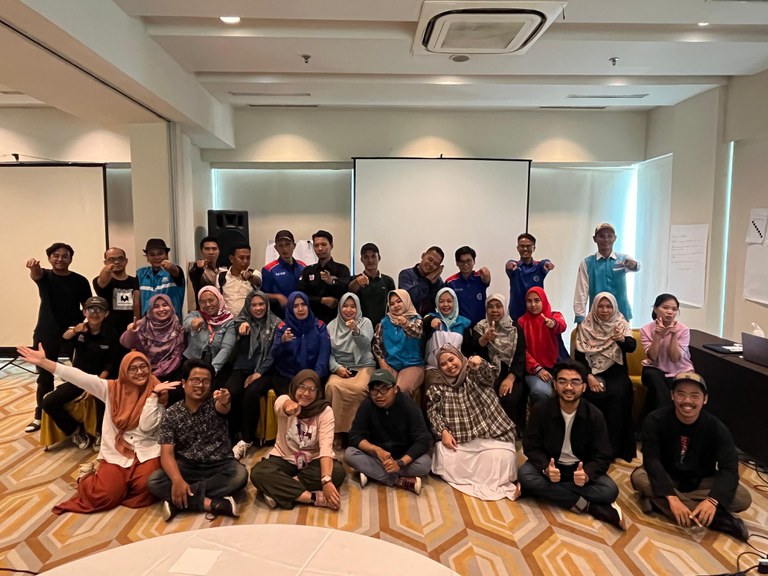
Read more:
